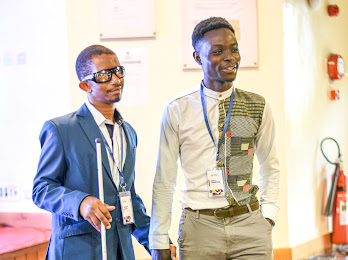|
Getting your Trinity Audio player ready...
|
By Lenah Bosibori
Nairobi, Kenya: Tech innovators in Kenya have urged the government to make disability assistive devices affordable and available to all including teachers with disabilities.
Speaking in Nairobi during a two-day technology-enabled summit, the tech innovators said that teachers with disabilities are often forgotten when assistive devices are donated to schools.
“These devices are very expensive and we urge the government and donors to put in mind teachers with disabilities also,” said Joan Orina from Innovate now.
Education Technology (EdTech) is a convening for the powerful public and private sectors that can make an EdTech ecosystem based on technology-enabled teaching and learning.
Saparna Biswas from Kilimanjaro Blind trust Africa said most of the schools with blind students still depend on donors who have taken a long to transform to the latest curriculum.

“Most of the schools with blind students are obliged to depend on what donors are able to distribute towards Curriculum Based Competence (CBC),” said Biswas.
She added that there is an improvement rate of transition from primary to secondary school among learners with disabilities.
The Chief Executive Officer and co-founder of EdTech Cotter Otieno said that they want to create a movement towards evidence-based technology-enabled learning.
The summit brought together industry experts to figure out how best to collaborate and design sustainable, more accessible, and impactful digital teaching and learning among learners in Kenya including learners with disabilities.
Challenges faced by tech innovators toward inclusivity.
The tech developers cited a number of challenges they are facing while implementing disability-enabled devices as follows.
Adequate resources like textbooks in brail which are not standardized towards the recent curriculum.
Disconnect among the stakeholders who provide digital technology.
Inclusive learning content is very little, and parents still hide children with disabilities at home.
Few sign language interpreters challenge getting government approval for digital content.
Others are limited connectivity, lack of data, few teachers with skills that are disability abled and the digital content is not customized to address the specific disability challenges.














